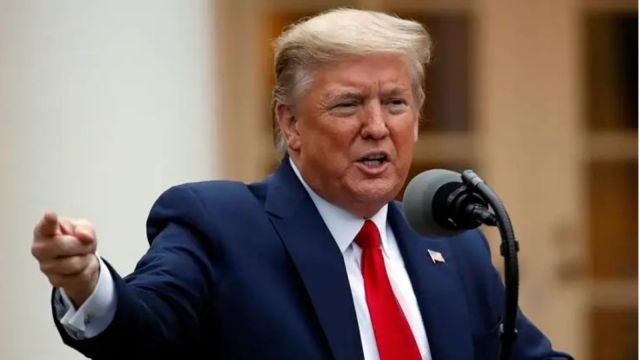Stay updated with the latest - Click here to follow us on Instagram
Trump suggests cutting China tariffs to 80% before key talks
The trade tension has hit China hard, with the country being the world’s largest exporter and second-largest economy.
 Trump introduced tariffs on Chinese goods in April, China responded with tariffs of its own. (File Photo)
Trump introduced tariffs on Chinese goods in April, China responded with tariffs of its own. (File Photo)US President Donald Trump has proposed reducing tariffs on Chinese imports from 145% to 80% ahead of a meeting with top Chinese trade officials this weekend. The talks, set to take place in Switzerland, are the first major discussions between the US and China since the trade war began.
Trump shared the idea on social media Friday morning, saying, “80% Tariff on China seems right! Up to Scott B,” referring to his Treasury chief, Scott Bessent, who has been handling trade matters.
He also encouraged China to open its markets, wrote, “WOULD BE SO GOOD FOR THEM!!! CLOSED MARKETS DON’T WORK ANYMORE!!!”
US Trade Representative Jamieson Greer and Bessent will meet with Chinese officials in Geneva, marking the most significant discussions between the two countries in recent months. The talks come as concerns grow in the US about the impact of high tariffs on consumer goods prices and supply chains.
The trade tension has hit China hard, with the country being the world’s largest exporter and second-largest economy. After Trump introduced tariffs on Chinese goods in April, China responded with tariffs of its own. Since then, tariffs between the two countries have continued to rise, with US tariffs on Chinese goods now at 145% and China’s tariffs on US goods at 125%.
Earlier, Trump had stated he wouldn’t reduce tariffs to continue talks, but he softened his stance on Thursday, saying he “could” lower the 145% tariff rate if the weekend discussions go well. “We’re going to see,” Trump said. “Right now, you can’t get any higher. It’s at 145, so we know it’s coming down”, according to Associated Press (AP).
His team has admitted that the 145% tariff rate is not sustainable, as it essentially blocks trade between the two nations.
However, it remains unclear how Trump will balance his goals. He wants to use the revenue from tariffs to offset income tax cuts, but he also aims to negotiate deals that would open up more markets for US goods, which would likely require lowering tariffs. His team has suggested that he intends to isolate China, but his tariffs on other trade partners complicate efforts to build lasting alliances.



- 01
- 02
- 03
- 04
- 05




























